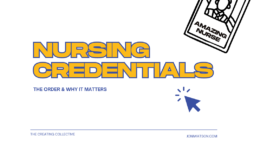The Article: Timian, A., Rupcic, S., Kachnowski, S., & Luisi, P. (2013). Do patients “like” good care?: Measuring hospital quality via Facebook. American Journal of Medical Quality. Advance online publication. doi:10.1177/1062860612474839
Big Idea: This first-of-its-kind exploratory study uses multivariate regressions, adjusting for numerous factors, to research the correlations between a cluster sample of 82 New York hospitals’ Facebook page “Likes,” patient satisfaction, patient recommendations, and 30-day mortality rates.
Survey Says!: 40 of the 82 hospitals had a Facebook page to qualify for the research. Study authors found there was, indeed, a significant negative relationship between hospital Facebook “Likes” and 30-day mortality rates. In addition, there was a significant positive relationship between “Likes” and patients’ recommendations of the hospital via the HHS Hospital Compare website.
Quotable: “In a recent study, 94% of respondents who gather health care information from social media use Facebook specifically [reference]” (p. 1).
“This research speaks to Facebook’s potential as a monitoring and evaluation tool that provides continuous data collection and allows researchers to gauge attitudes without costly and time-consuming surveys” (p. 2).
“Contrary to the hypothesis, teaching hospitals were found to be negatively associated with Facebook ‘Likes'” (p. 4).
“If one takes the existence of a Facebook page as a sign of hospitals’ public relations savvy, this suggests that patient recommendation is not simply a reflection of hospital quality but also is responsive to hospital public relations management. This finding supports the idea that patient recommendation is affected by variables outside of the model used and is an interesting topic for further research” (p. 6-7).
So What?: The researchers admit these findings may be “intuitive,” but are important to verify Facebook’s potential value to monitor patient satisfaction and quality care. This article is fascinating, and the authors do a good job of pointing out study limitations and opportunities for future research. Perhaps you should share it with your hospital’s communications/marketing department?






Kim Belcik on Facebook
March 8, 2013 8:18 amVery, very interesting. Would like to see someone repeat.